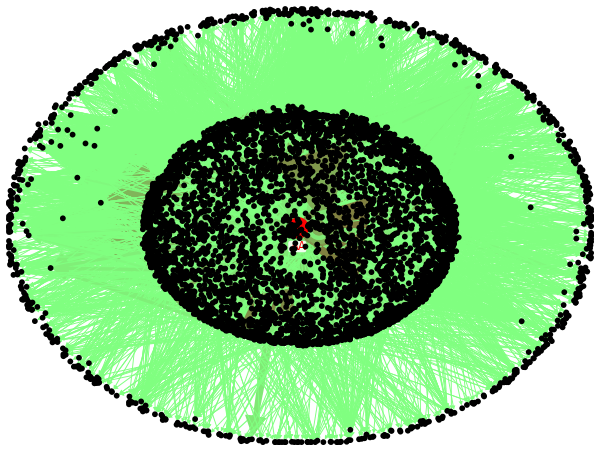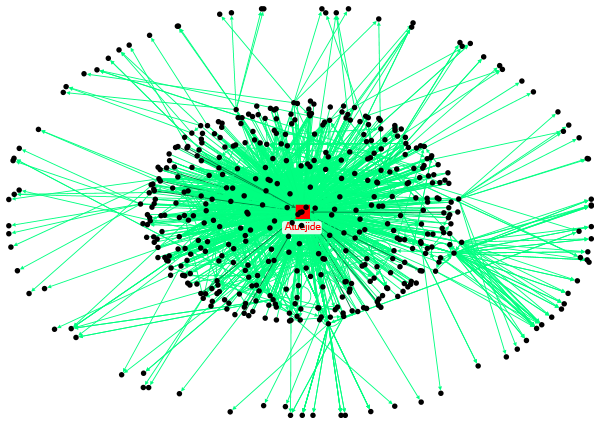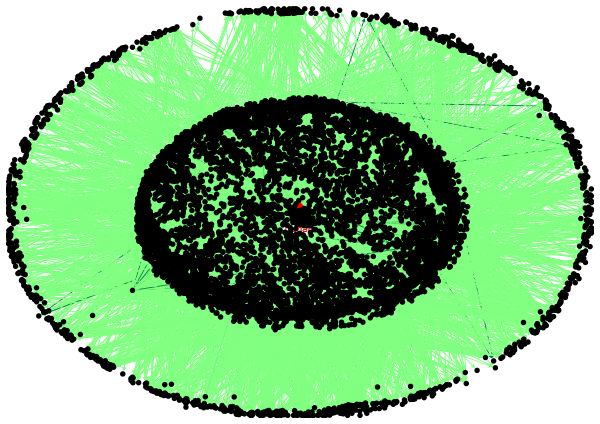Nigeria Election 2019: Are fringe presidential candidates really contenders?
Last Friday, Nigeria’s electoral commission confirmed that 79 candidates will contest the country’s presidential election in February 2019. There are predictions, however, that the contest will be primarily between the two main political parties in the country—the All Progressives Congress (APC) and the Peoples Democratic Party (PDP). Most of these predictions are based on patterns of past elections and the belief that only the APC and the PDP have a national spread.
Candidates of fringe political parties have argued that data from previous elections also show that majority of eligible voters do not participate in general elections. This untapped part of the electorate, likely dissatisfied with the political status quo, is the main target of alternative candidates as well as regular voters that have been disappointed by the current political class. Most (if not all) of these candidates rate their chances highly, and several have expressed optimism. But are they as popular as they think, and are prospective voters listening to them?
One way to explore this is to examine data from social media. Social media networks such as Twitter are somewhat the new public sphere—at least to the extent that members of the public can interact unmediated among themselves on issues they consider important. In fact, a medium such as Twitter enlarges this sphere and brings members of diverse communities closer.
For a person to win an election, they need to be popular; they should be in public discourse. On Twitter, this will naturally manifest through mentions, replies, tweets and retweets. This is what I test in this article. In the end, we should know, at least from the perspective of Twitter users, who the serious presidential candidates are.
What does the data indicate?
First, I collated basic data (such as the number of Twitter and Facebook followers) from the Twitter and Facebook pages of eight of the most visible presidential candidates, including the candidates of the two dominant parties.

From the interactive graph based on these data, most Nigerians online are engaging more with the candidates of the two dominant parties in terms of following. While Muhammadu Buhari and Atiku Abubakar have over 1.5 million Twitter followers each, none of the other contestants have up to a million—the closest is Ezekwesili with about 800,000 Twitter followers. The story is no different on Facebook except that, in this case, Donald Duke replaces Ezekwesili as the third most followed individual of the eight candidates on Facebook. If one considers the number of tweets sent by candidates, Ezekwesili and Omoyele Sowore tweet the most. Surprisingly, younger candidates such as Eunice Atuejide are not utilising Twitter (in terms of tweets sent) as much as expected.
The important bit of this analysis is that which measures the actual level of engagement. I conducted a network analysis of the last 18,000 Twitter interactions on each of the eight candidate's Twitter handle (as at midday October 24). The graphs show that the level of interaction with Abubakar (@atiku), Ezekwesili (@obyezeks) and Buhari (@MBuhari) far outweighs those of the other six candidates. Simply put, online users are engaging more—tweets, retweets, mentions, replies—with the main two candidates than with the outsiders with the exception of Oby Ezekwesili. For clarity, here is the network analysis graph of Atiku Abubakar and Eunice Atuejide. (The black dots represent Twitter users and the green lines are twitter interactions. Each candidate is in the middle of their respective graphs.)
As already mentioned, the only candidate among the outsiders closest to the main contenders in terms of actual level of engagement is Oby Ezekwesili. In fact, there were more individual accounts in her Twitter network than in Atiku Abubakar's. Her online popularity is likely a combination of several factors including her activeness on Twitter (as per number of tweets) and political activism.
Oby Network Analysis
Oby Ezekwesili Twitter Network Analysis
Her popularity cannot, however, be simply attributed to her active presence on Twitter or her political activism especially if one considers that Omoyele Sowore also claims to be an activist and tweets actively, yet does not enjoy a similar level of engagement.
The network analysis graphs of Buhari and the other four candidates are below. What is important here is that Buhari had the most engagements and the other fringe candidates had much lower levels of engagement.
What do these mean? The data suggest that Oby Ezekwesili is the best chance among the outsiders of a potent contender for the presidency. Perhaps, if other alternative candidates support her, her chances will be much more improved. I don’t see that happening, however.
First, some of the fringe candidates believe only in their own candidacy and would not be part of any coalition to propel one candidate. Some others are suspicious of other fringe candidates. For instance, the candidate of the NIP Eunice Atuejide tweeted this:
Third, several members of fringe parties belong to the Coalition of United Political Parties (CUPP), a coalition that includes the PDP, and invariably will support the candidacy of Atiku Abubakar instead of another fringe presidential candidate.
These make it difficult to counter the opinions of analysts that predicted a horse race between the candidates of the two main political parties. There is also the history and structure of these dominant parties to consider especially in light of the lack of cooperation among the alternatives.
Thus, although the data suggest that a candidate like Ezekwesili should not be underrated, Nigerians who want to see an alternative to the prevailing political structure might have to wait a little longer.
About the Author
Confidence Uwazuruike researches on politics and the media in Africa. He is co-editor at Afritondo




